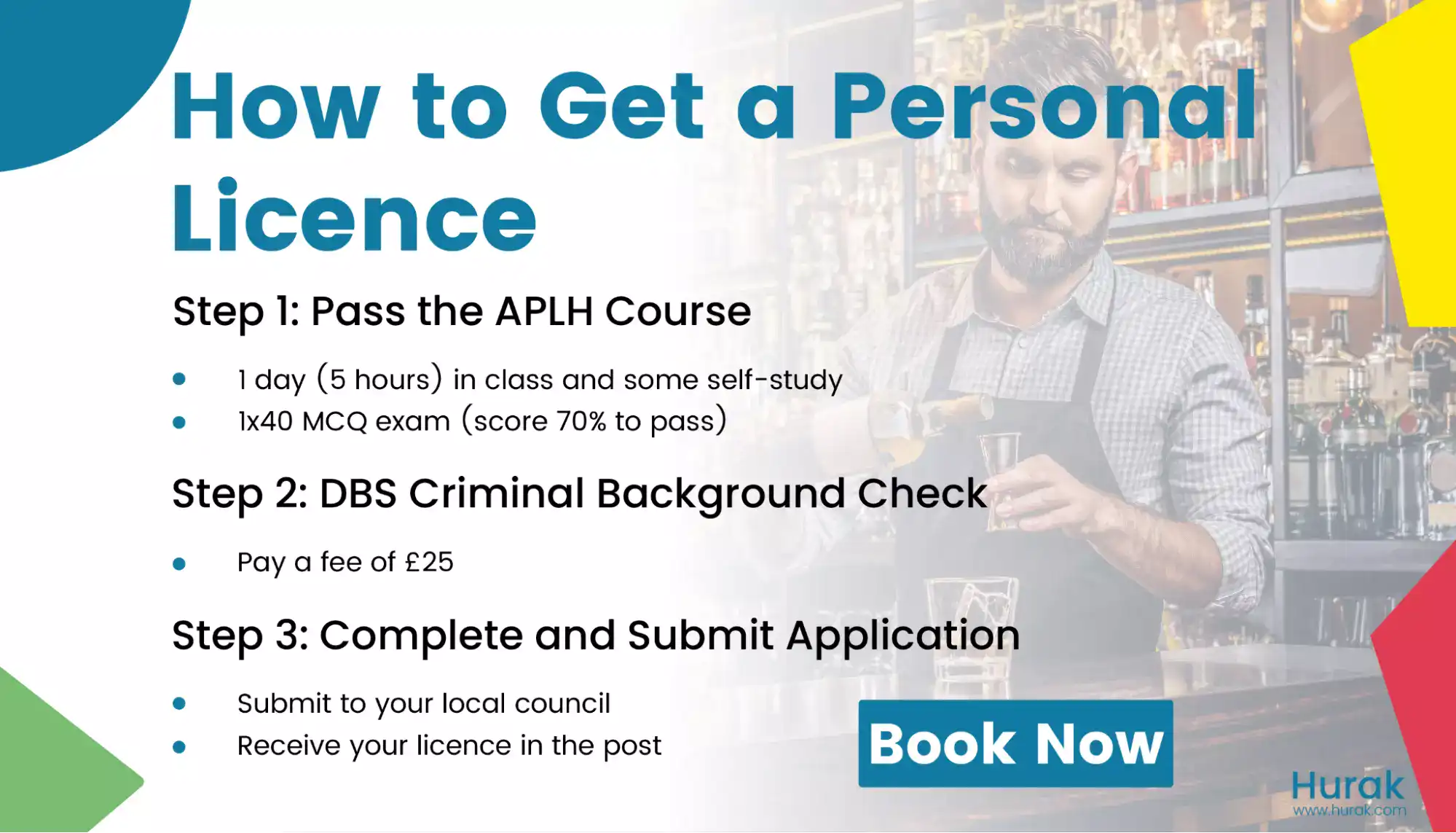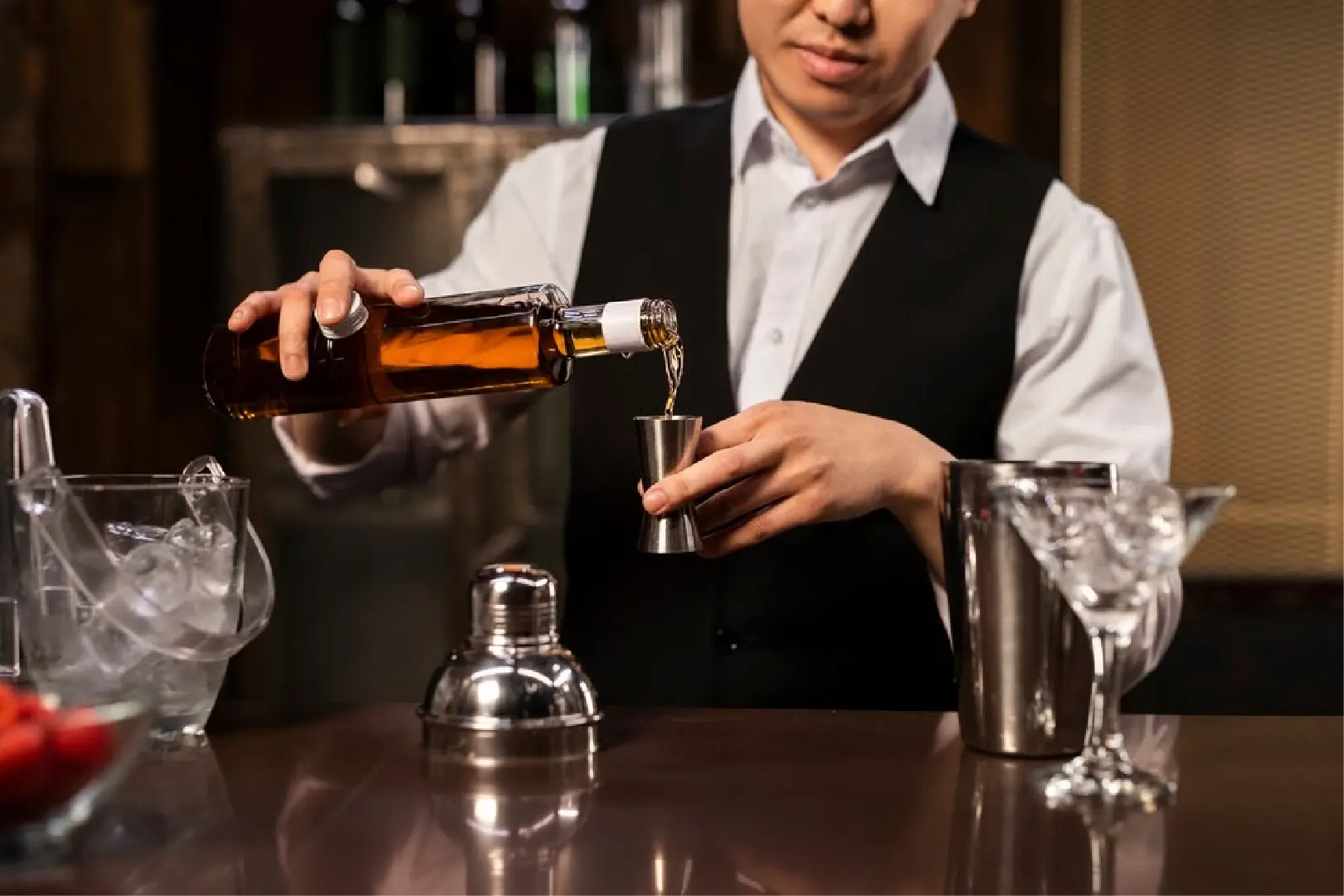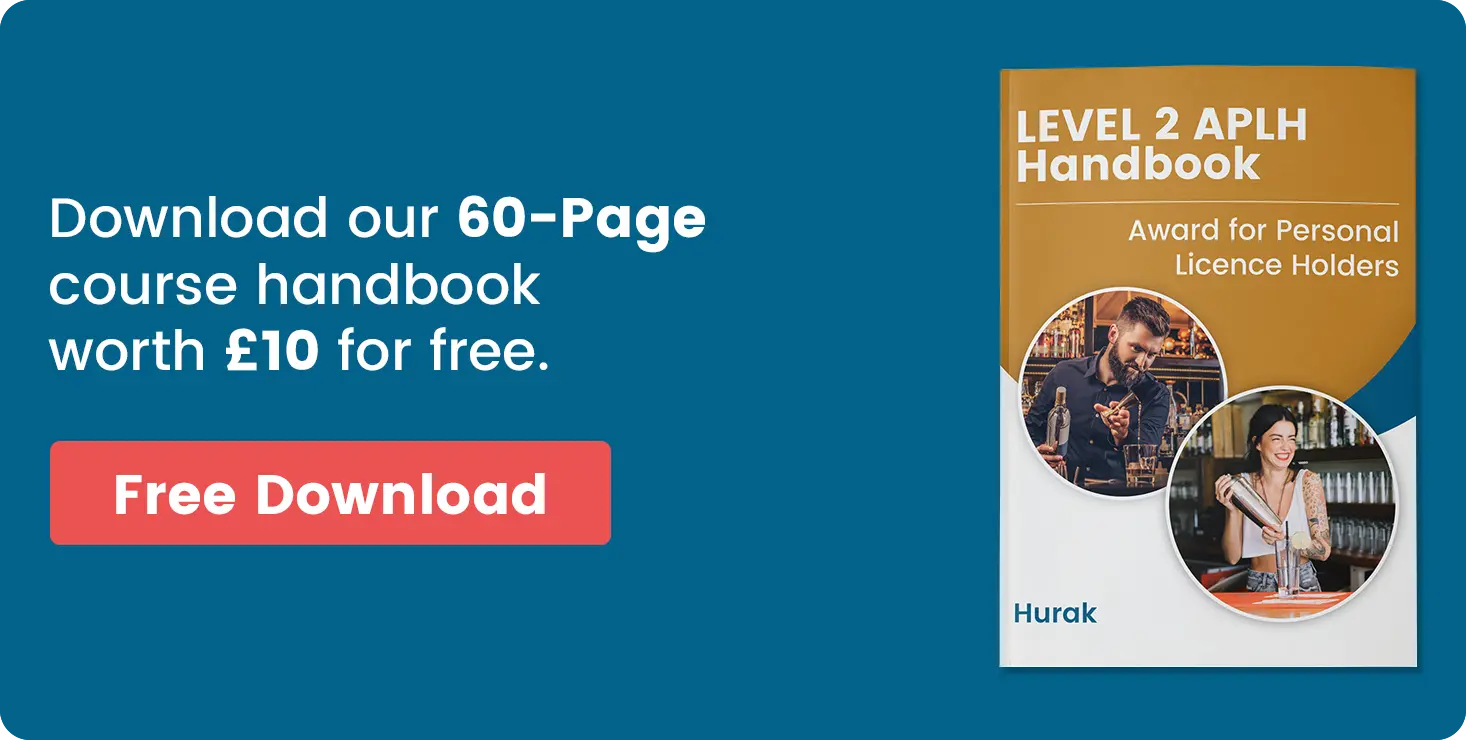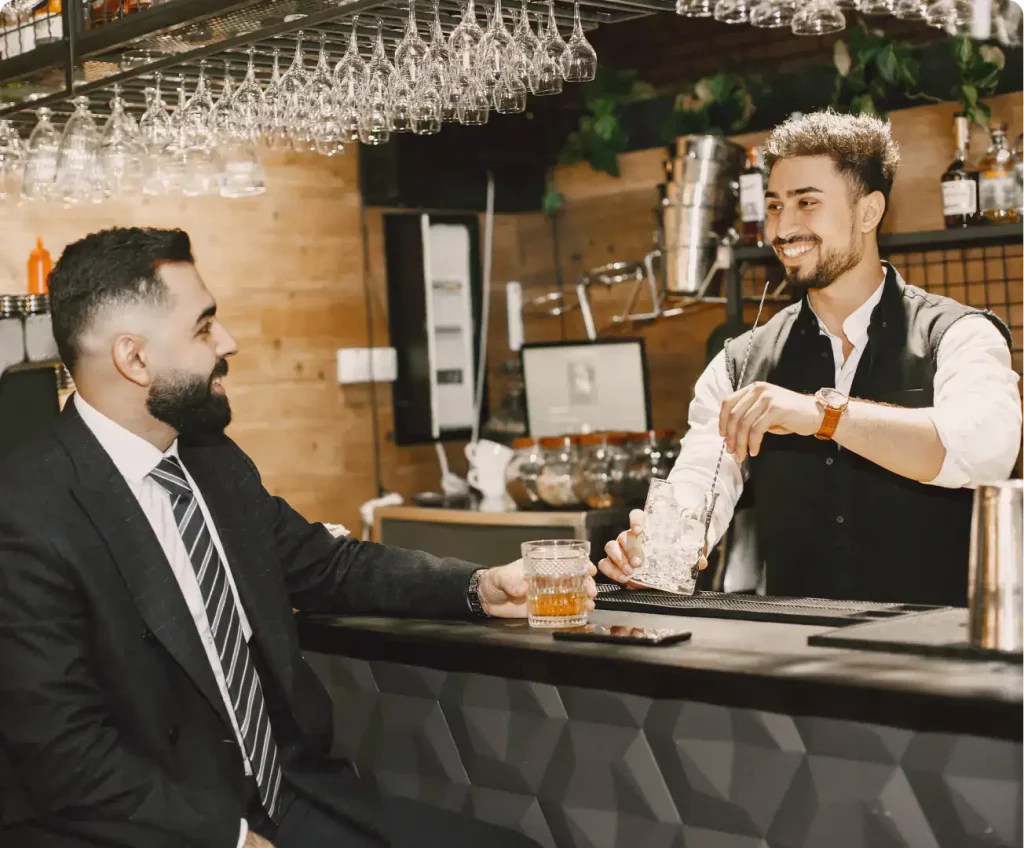Getting a Person Licence is mandatory for you if you want to sell alcohol on behalf of any licensed premises in the UK. The license allows you to become a Designated Premises Supervisor for a business that supplies alcohol.
It’s an easy 3-step process that involves getting the right qualification, completing a DBS check, and submitting an application. In this blog, I’m going to discuss these steps in detail on how to get a Personal Licence, and other relevant information that you must know.
What is a Personal Licence?
In the United Kingdom, local councils issue a Personal Licence to individuals whose job involves selling alcohol on behalf of any licensed premises. A Personal Licence doesn’t have an expiry date, and the personal licence application fee is £37.
A Personal Licence is often referred to as APLH and Personal Alcohol Licence.
The purpose of issuing this licence is to ensure that individuals who are responsible for selling Alcohol for the licensed premises they are working in must do it responsibly and professionally.
Having a Personal Licence proves that personal licence holders are well equipped with the knowledge and skills to sell alcohol legally. Moreover, it shows that these licence holders are well aware of maintaining a safe environment for everyone on the premises.
How to Get a Personal Licence
Getting a Personal Licence involves three simple steps.

Step 1: Pass the APLH Personal Licence Training Course
The first to get a Personal Licence is to complete the ALPH Personal Licence Course successfully.
You can complete this course in one day with only 5 hours of classroom learning and some self-study. You will be assessed by a multiple-choice APLH exam.
This Personal Alcohol Licence Course follows the syllabus of the Highfield APLH Level 2 Award for Personal Licence Holders qualification.
Personal Licence Mock Exam
To complete this course, you must pass an MCQ-based assessment. Before you attempt the real ALPH course test, taking this mock test will help you.
Take The Mock Test Now
Step 2: Complete the DBS Check
Getting a DBS check is an integral part of your Personal Licence application. You must carry out a recent Disclosure and Barring Service check, which will cost you a £25 fee.
Step 3: Complete & Submit Application
After completing your APLH Personal Licence Course and getting a DBS check, the final step is to complete and submit your Personal Licence application.
Personal Licence Application
Check out our video on how to get a Personal Licence.Eligibility Criteria for Getting a Personal Licence
Before you apply for a Personal Licence, make sure you meet the following eligibility criteria:
- Must have the legal authorisation to work in the UK,
- Must be 18 years old,
- Completed the APLH Course.
Also…
- Must not be found guilty of any relevant crimes
- Must not lose a Personal Licence in the last 5 years.
Get your Legal Personal Licence by signing up for our APLH courses
Personal Licence Courses
Book NowRated Excellent
on major review sites

Requirements For Personal Licence Application
- Recent DBS check
- 2 countersigned photographs
- Original certificate of your qualification
- Pay £37 fee
- Disclosure of convictions form (if applicable)
How Long Does a Personal Licence Last?
A Personal Licence does not expire and lasts forever. In the past, it used to expire after 10 years.
Read our blog, “How Long Does a Personal Licence Last,” to get more information about the validity of a Personal Licence.
How Much Does a Personal Alcohol Licence Cost in the UK?
The application cost for your Personal Licence is £37. This is an application fee, which should be paid to your local council. Apart from the application fee, you must pay £25 for getting your basic DBS Check.
Personal Licence Renewal
A Personal Licence lasts indefinitely, so you don’t need to go for its renewal.
Do I Need a Personal Licence (APLH)?
You need a Personal Licence if you plan to get a job that involves selling alcohol, such as in pubs.
Personal Licence Scotland
You need a Personal Licence Scotland if you’re living in Scotland and intend to work in licensed premises that serve alcohol.
Apply for your SCPLH Scottish Certificate for Personal Licence Holders now.
APPLY NOW
Change of Details
Holders of Personal Licences must maintain their information current. If you don’t, you risk being prosecuted.
You must inform your licencing authorities of changes, such as those to your name or address. The organisation that issued your licence is always your licencing authority. This service costs £10.50.
Download our Personal Licence (APLH) Test Prep Book for free!
×
Frequently Asked Questions (FAQs)
What does forfeiting a Personal Licence mean?
A court may order the cancellation of a Personal Licence if convicted of a relevant offence. It’s also known as being forfeited. Courts can also impose a suspension of up to six months on a Personal Licence.
Can I apply for a licence with a criminal record?
If you have a criminal record, it does not automatically disqualify you from applying for a Personal Licence. The licensing authority will assess whether your conviction is relevant to your licence application before making a decision.
What identity checks are required for my licence application?
You can do it online in most cases. Just ensure someone important, like a lawyer or a respected person (solicitor or notary), signs your passport photos.




